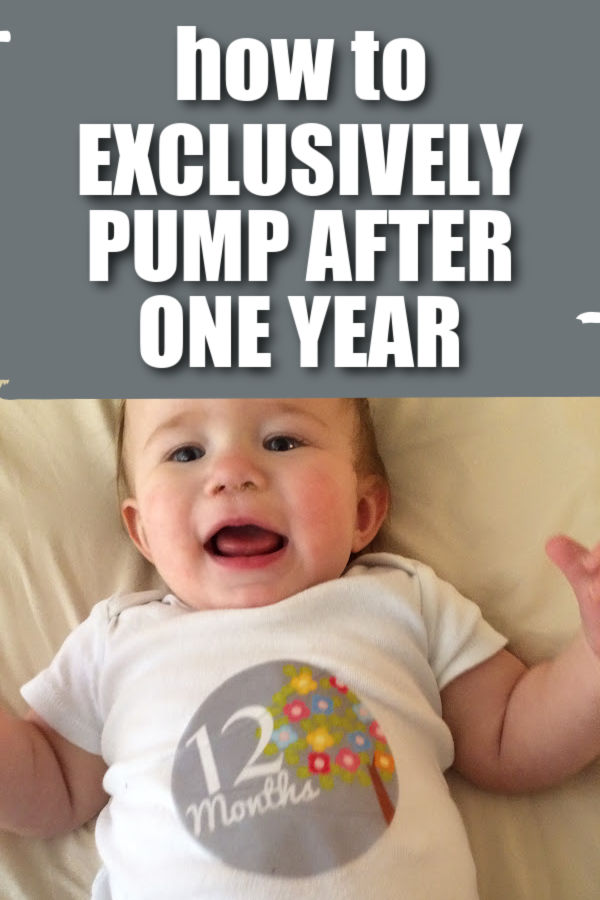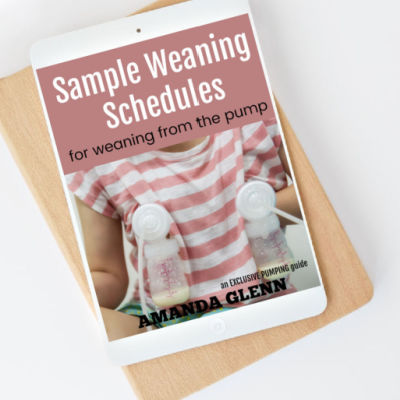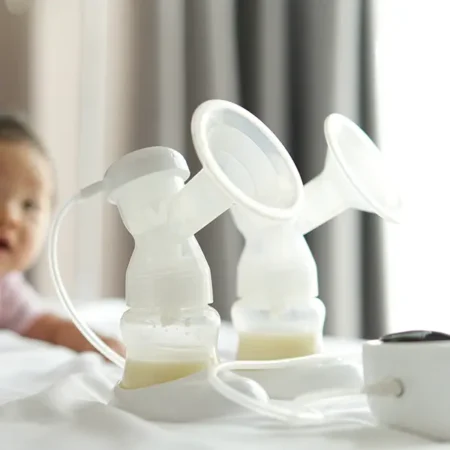Many moms that are still exclusively pumping when their baby turns one decide to transition their babies to cow’s milk and start the weaning process. However, some exclusive pumpers choose to keep on pumping! Here’s when that might make sense, and some common challenges and tips for exclusively pumping past one year.
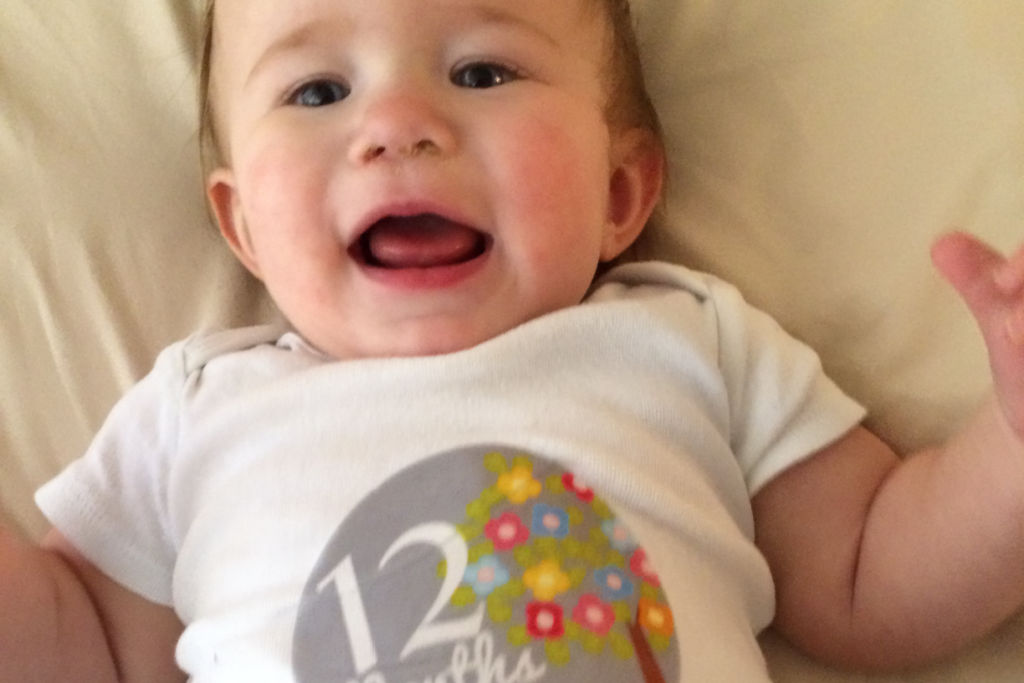
This post may contain affiliate links, which means if you click a link and purchase something, I may make a small commission at no additional cost to you. I only recommend products I love! More information here.
Why exclusively pump past a year?
There are lots of reasons that an exclusive pumper might continue pumping after her baby turns one. Some of these include:
1. Difficulty transitioning baby to another milk
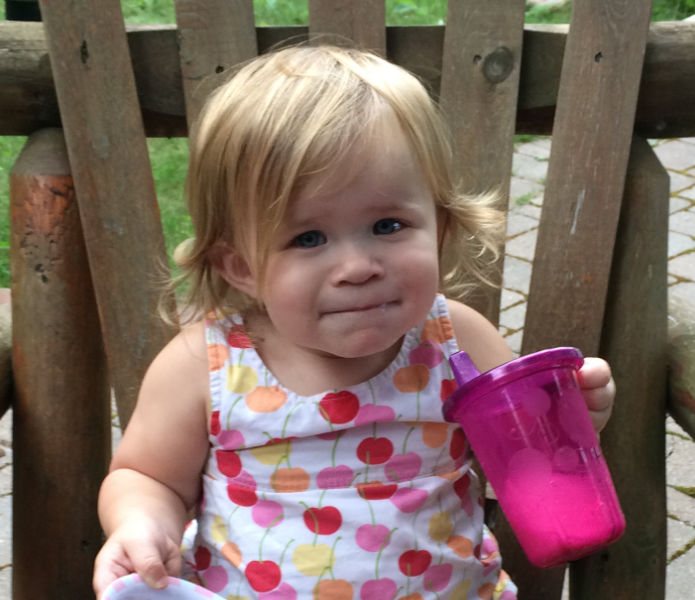
Transitioning your baby off breast milk can sometimes be challenging.
For example, some babies have a dairy allergy, and it may take some time to find a substitute milk like goat, soy or almond that works. Some babies may also need to transition slowly, with their new milk mixed with breast milk while they adjust.
2. Reach a donation goal

Some exclusive pumpers with oversupply donate their extra milk to a milk bank, and they may have a goal of a certain number of ounces that they want to give.
Others might be milk sharing with another family, and want to continue to do this until baby reaches a certain age or milestone.
3. To protect against illness
If their baby’s first birthday coincides with when flu season is starting or when baby is starting daycare, some moms decide to continue pumping in order to continue giving the benefits of antibodies in breast milk.
4. Baby has special needs
Some babies have certain medical needs (such as issues with digestion) where they could benefit from continuing to receive breast milk.
Common Challenges with Exclusively Pumping Long Term
Below are three common challenges that moms have with pumping past one year.
Milk Supply
The biggest challenge that exclusively pumping moms face after the year mark is milk supply.
Even if you stick to your pumping schedule perfectly and do all the things that you’re supposed to, sometimes changes in hormone levels can cause drops in milk supply.
This is especially common when you get your period back, or if you were to become pregnant again.
Both happen of these have happened to me. When I got pregnant again at 14 months postpartum, my supply went to almost nothing overnight; before that, my period had an effect on it every month.
Can you increase milk supply after one year?
A lot of people – including me – find that it’s a lot harder as time goes on to boost your supply.
It’s still worth trying, though. I did have some success with eating oatmeal, so it might make sense to try different things and see what works for you.
Support from Family and Friends
Another thing that some moms struggle with is getting support from family and friends.
Exclusively pumping can already feel like being on an island – after all, you might not know anyone else that pumps – but doing it past a year can be even more isolating if the people close to you don’t understand why you’re continuing to pump.
Getting out of the House
Another challenge can be getting out of the house and pumping in public or traveling with breast milk.
Obviously, lots of moms deal with both of these in the first 12 months. However, when your baby becomes a toddler, you may want to get out of the house more so your little one can work off some energy. You might also want to go on trips that you put off when your toddler was a baby and not sleeping through the night.
Getting pumping sessions in and managing breast milk when you’re more active (and your baby/toddler is more active) can make all of that more complicated.
Want More Help Weaning? Use WEANING for 20% off
Tips for Exclusively Pumping Past One Year
If you decide to keep pumping past a year, here are some tips for working through these challenges.
Find a schedule that works for you now
Make sure your pumping schedule is manageable and realistic for this point in your life.
If you’re still waking up in the middle of the night to pump, consider dropping that session, even if it means a loss in supply, or moving it to the daytime. Figure out what works for you now – which might not be the same as it was a few months ago – and set your schedule up to fit it.
Stick to your pumping schedule
Once you have a schedule that fits your life, be consistent with it to mitigate the risk of losing supply.
You can’t control your hormones, but being on a consistent pumping schedule is something that you CAN control.
Consider a calcium-magnesium supplement if your period is an issue
If you do get your period back, there are a few things you can do to mitigate the supply loss, like take a calcium-magnesium supplement.
Here are some additional strategies.
Get comfortable with pumping on the go
If you have pumping sessions that aren’t during your child’s naptime, get as comfortable as you can with pumping in public when you need to so that you’re able to get out of the house with your toddler.
Find support if you need to
Seek out support online. If your friends and family aren’t particularly understanding, join exclusive pumping Facebook groups (here’s the one I started, but there are more out there!) and follow exclusive pumpers on Instagram. You’re not alone!
Have you exclusively pumping past one year? Tell us about your experience, and share your tips with us below in the comments!
